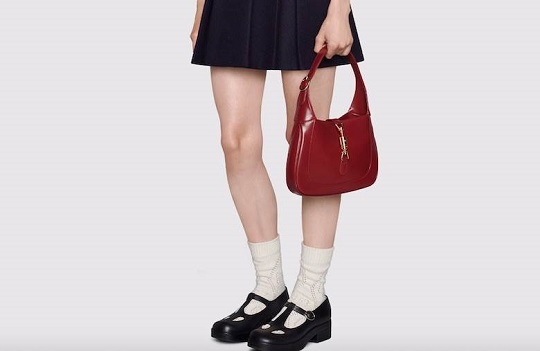7 February 2022
Leatherbiz reports that high prices for luxury leathergoods can, even in this part of the market, put consumers off. This is the suggestion behind comments that the chief executive of Piaget, Benjamin Comar, gave recently to the Financial Times.

Jackie 1961 bag from Gucci
Mr Comar took up the role at the head of the Swiss watch and jewellery brand in 2021, having previously worked at Chanel and Cartier.
He told the FT he was optimistic about growth and said factors that are contributing to this include an increase in the number of higher-end consumers who are “self-purchasing”, in other words spending sizeable sums of money on gifts for themselves. Mr Comar said this was far less common at the start of his career.
He also pointed out that many wealthier consumers use jewellery as an expression of their personality and continued to do so during lockdown. Adding to positive contemporary signals for jewellery brands is the idea that current dressing trends lend themselves to wearing multiple pieces of jewellery at once, on the neck, wrists and fingers.
Crucially, though, Benjamin Comar also made the point that prices of high-end leathergoods have risen “disproportionately” compared to jewellery. The clear implication is that, even shoppers with enough disposable income to treat themselves to expensive products can be swayed by price and will choose a new watch or piece of jewellery instead if leathergoods appear to them to offer less value for money.

使用條款 | 隱私政策 | APLF 可持續發展